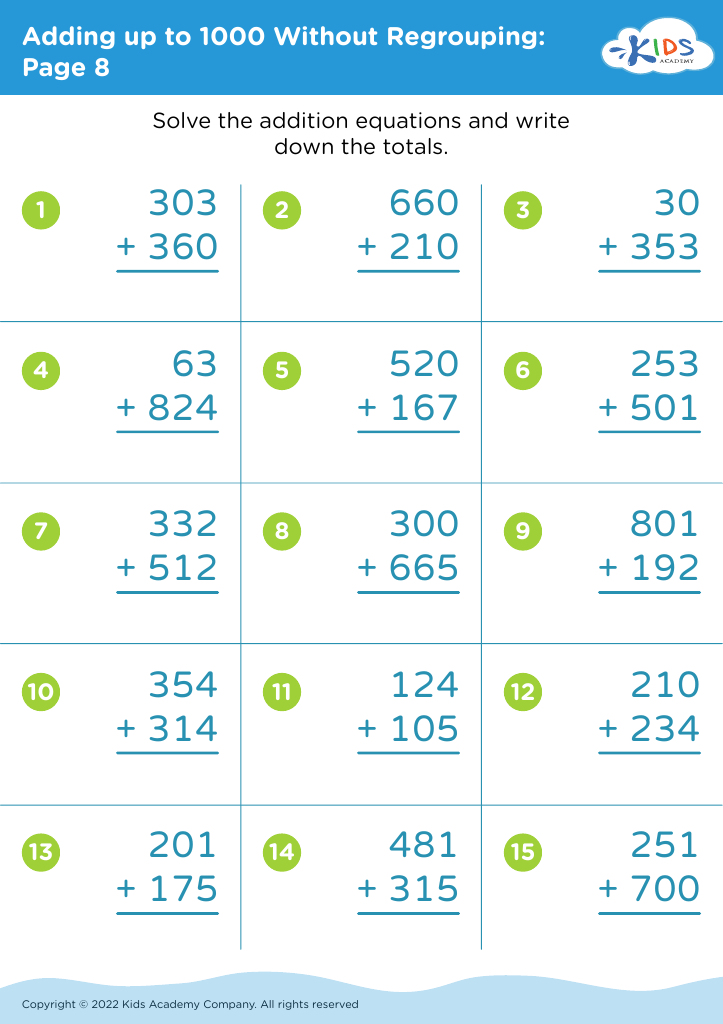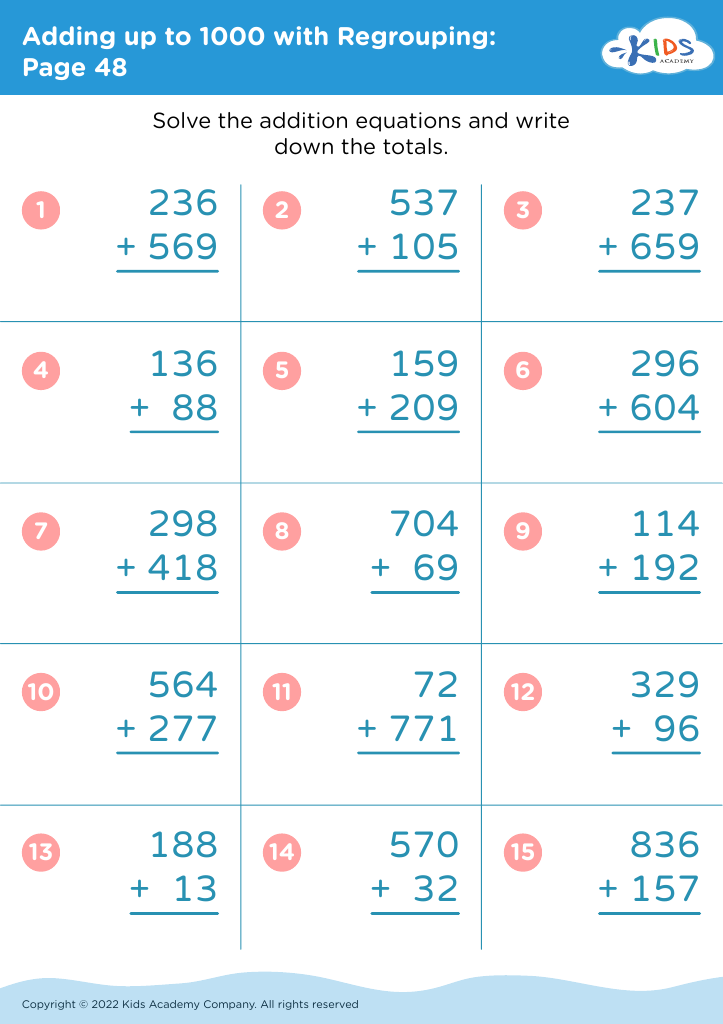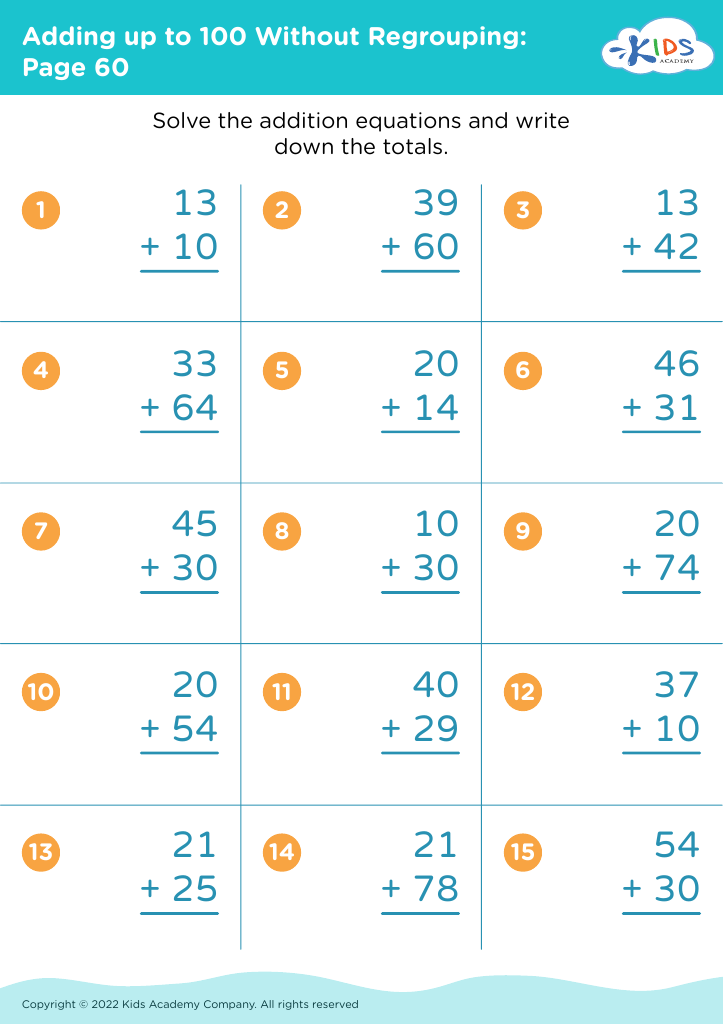Improve reading skills Math Worksheets for 8-Year-Olds - Page 2
29 filtered results
-
From - To
Improving reading skills in math for 8-year-olds is crucial to their overall academic success and cognitive development. At this age, children transition from basic arithmetic to more complex mathematical concepts, and strong reading skills are essential for understanding math problems and instructions. If children struggle to comprehend word problems, they may struggle with problem-solving, limiting their confidence and willingness to engage with math.
Additionally, reading enriches vocabulary and comprehension, which can directly influence mathematical reasoning. A child who can read and understand math terminology is better equipped to interpret questions accurately, making it easier for them to apply concepts successfully. Furthermore, these skills often cross over into other subjects, fostering a love for learning and building critical thinking abilities.
Parents and teachers play pivotal roles in supporting this development. By encouraging practices that integrate reading into math, such as discussing story problems or using educational games, they can create a supportive learning environment. This interdisciplinary approach not only boosts a child's academic performance but also instills essential life skills like logical reasoning, patience, and resilience. In doing so, parents and teachers can empower children with the foundational tools needed for future successes in both math and literacy.




















